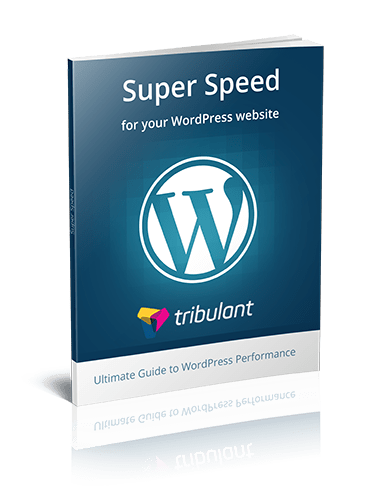
WordPress Vs Drupal, Which One Is A More Powerful Contender?

When it comes to web designing, which CMS name repeatedly pops up in your mind? Many of you might favor WordPress while more than half will support Drupal. However, the majority will face the dilemma to decide which one is better in the world of CMS market.
Both WordPress & Drupal are popular for their own features & capabilities. Knowing that a CMS benefits web designers in countable ways, they select user-friendly CMS to structure the content in their own style. WordPress & Drupal both are cut-throat competitors and it’s important to make in-depth research work from both sides to draw out the latent facts & figures.
WordPress & Drupal are incomparable as the level of skill & usability. But considering their features & flexible operations, you can find key factors to define which one is favorable to be used for web designing.
Web designers preferably go for easy-to-use CMS update content & customize a website. However, the below popularity graph states that WordPress stays ahead from other CMS with a wide gap:

In addition to this, around 55% of the most popular websites run on WordPress content management system.
Undoubtedly, the above points are in favor of WordPress. However, many popular websites including The Economist rely on Drupal for their website. There are numerous most visited websites which are based on Drupal CMS due to its specific features. The confusion arises either to go for WordPress or Drupal as they both have few similar features that are:
- Both Drupal & WordPress are written in PHP scripting language.
- Users, third parties, web developers, & other communities can use Drupal as well as WordPress.
- Both are open source content management systems.
- They support MySQL as a data management system & used for data storage.
- Both comprise an extended range of compelling themes & plugins to let you customize your website design & enhance its features.
Even after knowing the similarities of WordPress & Drupal, the question remains same that which one is better. Let us describe few distinctive characteristics of both CMS so that you can find your answers:
Content Structure & Usability
As per the current statistics, WordPress is majorly used by beginners as even a non-technical user can make the best use of this CMS for the customization of a web design.
Note down this point that WordPress is easy to use whereas Drupal lacks user friendliness. You will face various issues while using Drupal as it requires core technical knowledge of HTML, PHP, & other programming language with coding skills.

Simple set-up & installation are yet other reasons to say that WordPress is a right choice to go for customizing a web design & its features. WordPress dominates over Drupal because of many factors are given below:
- Single click installation
- Installation time- Around 5 minutes
- Simple & flawless user interface
- Easier & faster creation of WordPress blogs
- Automated updates that Drupal lacks
Pile Of Customizing Options
Availability of multiple themes & plugins enables you to customize your web design in a distinctive manner. WordPress offers numerable WP themes & plugins and the best thing is that the majority of them are free.
On the other hand, Drupal themes & plugins serve flexibility for customizing your website but many of its advanced premium themes are paid.
Search Engine Optimization
WordPress & Drupal compete to provide better SEO opportunities with web designing. SEO is a major factor to consider while making selection for better CMS i.e WordPress or Drupal.
However, Drupal allows you to structure large content of your website at faster speed while WordPress lacks this feature. In other words, Drupal lets you manage one-page static site with hundreds of webpages while WordPress slows down in the similar process.
Security
CMS plugins are vulnerable to security hacking. You must know that Drupal offers enterprise-level security along with descriptive security reports
WordPress plugins are prone to security issues if they are outdated or the latest version is not installed from time to time. No doubt, WordPress is popular & hackers majorly target WP websites due to this fact.
Expenditure
Drupal & WordPress both are open source CMS that are available for free installation. But, you have to pay if you want to customize your website with advanced features or attach few extensions to it.
WordPress cuts down your expenses when you have unlimited access to varieties of responsive & impressive themes and compatible plugins. In case of Drupal, you have limited options if you want to customize your web design with minimal expenditure.
Final Outcome
Now you might be having idea to conclude that which CMS wins the race alongside considering all above aspects. The comparison between Drupal & WordPress is helpful to guide beginners and enthusiastic web designers who actually aspire to bring their best for web designing & development. With minor ups & downs, both CMS are significant because of few specified features.
Jacob Colleen works as a CMS website developer at Webby Central, a renowned CMS website development service provider. Along with web designing, he loves writing technical blogs & articles to share his knowledge & trending techniques. In the above article, he has described an overview to conclude that which CMS wins in the race of web designing.
Earn Money by Referring People
Refer customers to us with your affiliate link and earn commission on sales from your link.



We agree. If you want a large scale site then Drupal is the answer. Several local government sites (councils) in the UK use Drupal, which speaks volume
Whether you are using WordPress or Drupal, the cost of your site will very much depend on what you want to create. However, as your business grows, and you need to scale your site, premium products and professional services are pretty much inevitable. In which case, it is Drupal that will cost you more in the long term.